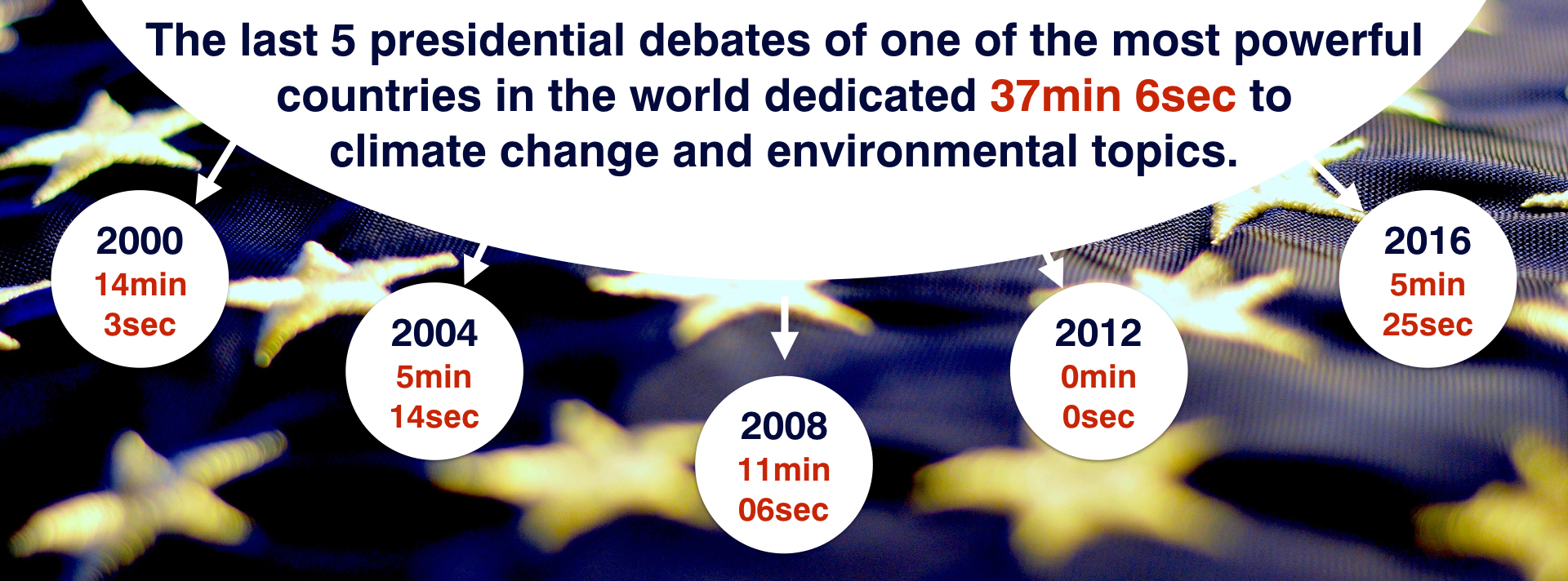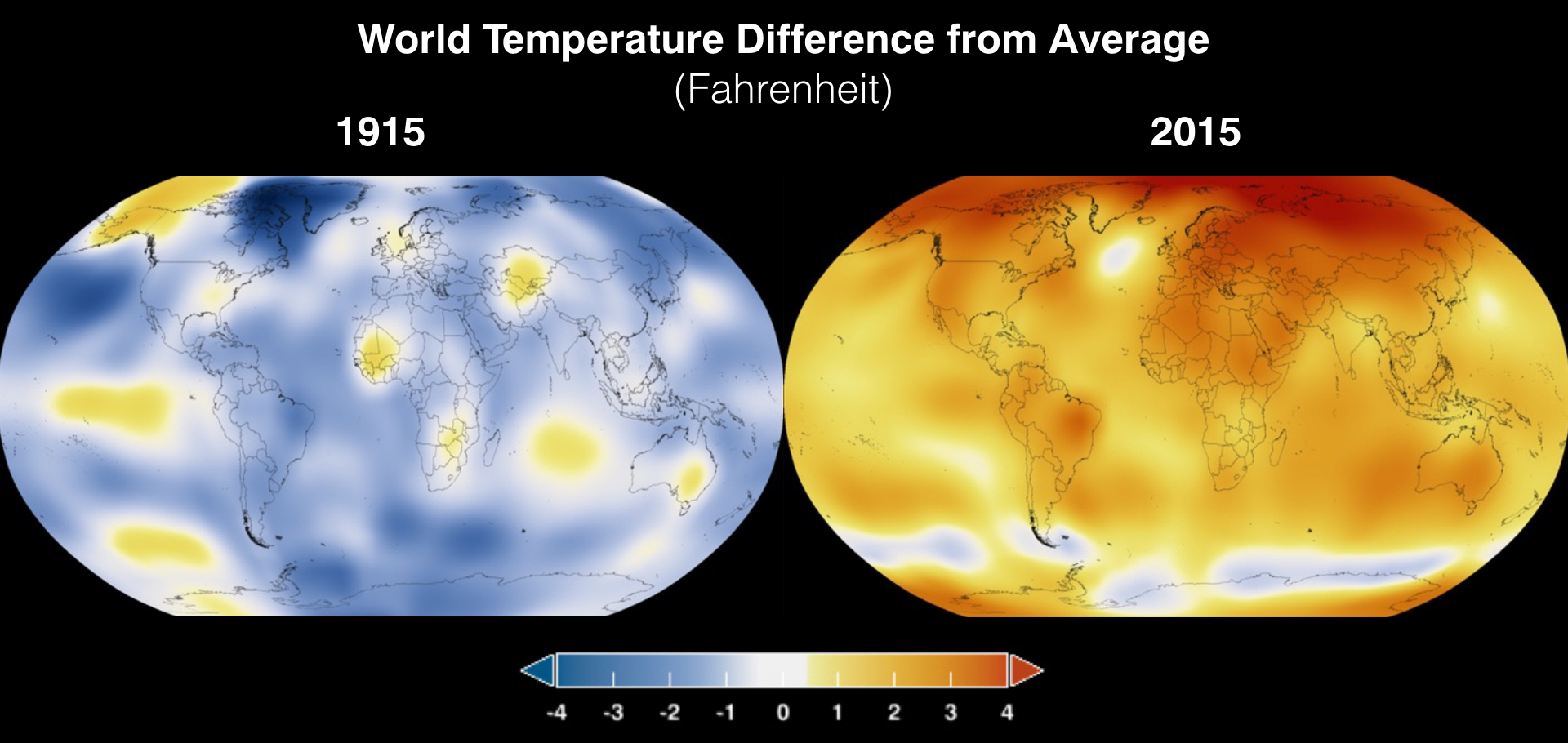More than the global debt levels, free trade and immigration, the threat of multi century droughts, rising sea levels and biodiversity’s sixth extinction should be top of the agenda for the world’s leaders. Yet even after four record-breaking debates for the US Presidential election with hundreds of millions of people watching from around the world, there was no mention of an issue that will reverberate for millennia – climate change.
 Source: Grist Organization, 2016
Source: Grist Organization, 2016
Not only will the impact of climate change be seen in our own lifetime, but also for the next 100,000 years. Global warming over the 21st Century will produce a climate not previously experienced by human civilizations. This massive change is expected to reshape our ecosystem. Future generations ultimately will inherent a world that is hotter, more prone to extreme weather and less bio diverse than our own.
The world continues to reach its highest temperatures ever recorded (relative to preindustrial levels and the 1951-80 average) at a time when we are also experiencing peak concentrations of carbon dioxide in the atmosphere. By all scientific accounts 2016 is on track to be one of the warmest ever recorded. In September, a time atmospheric carbon dioxide is usually at its minimum, the monthly value failed to drop below 400 parts per million. This is more than 40% above preindustrial levels and can only rise further as man-made emissions caused by a range of factors from fossil fuel production to agriculture continue their unprecedented rise. As a result the planet has already edged right up against the 1.5C (2.7F) warming threshold, a key metric in last year’s COP21 Paris Agreement.
Source: Global Climate Change, NASA
The world’s top scientific institutions agree that this will cause extreme weather events, poverty and economic stagnation across generations. The evidence can be seen today, from sea level rise, unpredictable rainfall, the retreat of Arctic sea ice and the acidification of our oceans to name a few. Millions of people are set to become climate refugees as crops fail and drinking water becomes polluted. There is even severe conflict risk as the battle for resources in this heated environment becomes more severe.
When referring to the consequences of a changing climate, the sheer quantities and timeframes are so massive they often dwarf human understanding and care. One of the most challenging aspects to come to terms with regarding the Anthropocene is the fact that human civilization has become the primary driver for global change. Our decisions will echo across generations and yet our primitive instincts direct our thoughts to the confines of the immediate future.
We must act now and with the long-term benefit of the human race in mind. Simply changing your light bulb or remembering to switch off your lights will not suffice.
Profound change must come from governments, organizations and investors in order drive sustainability and protect our climate. In the United States of America wind and solar account for just 3% of total energy production. The US Energy Administration estimate that in five years this will increase by a mere 1%. Fortunately seven companies, including BP, Shell, Saudi Aramco and Statoil, are launching an investment fund this week to accelerate clean and low carbon technologies. Rather than simple greenwashing, this is good news as not so long ago, during the oil crisis of the 1970s, Exxon invented the first rechargeable lithium-ion battery.
If governments set the rules for environmental protection while corporations and investors fully realize the lucrative opportunity in going down this avenue we will achieve true sustainability across several sectors very quickly.
